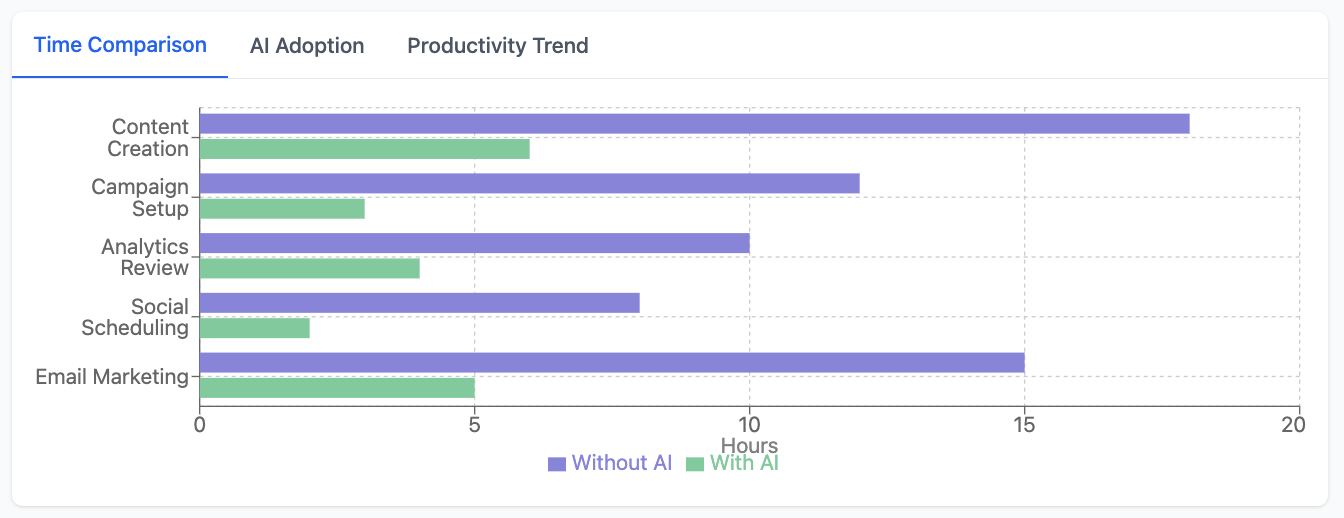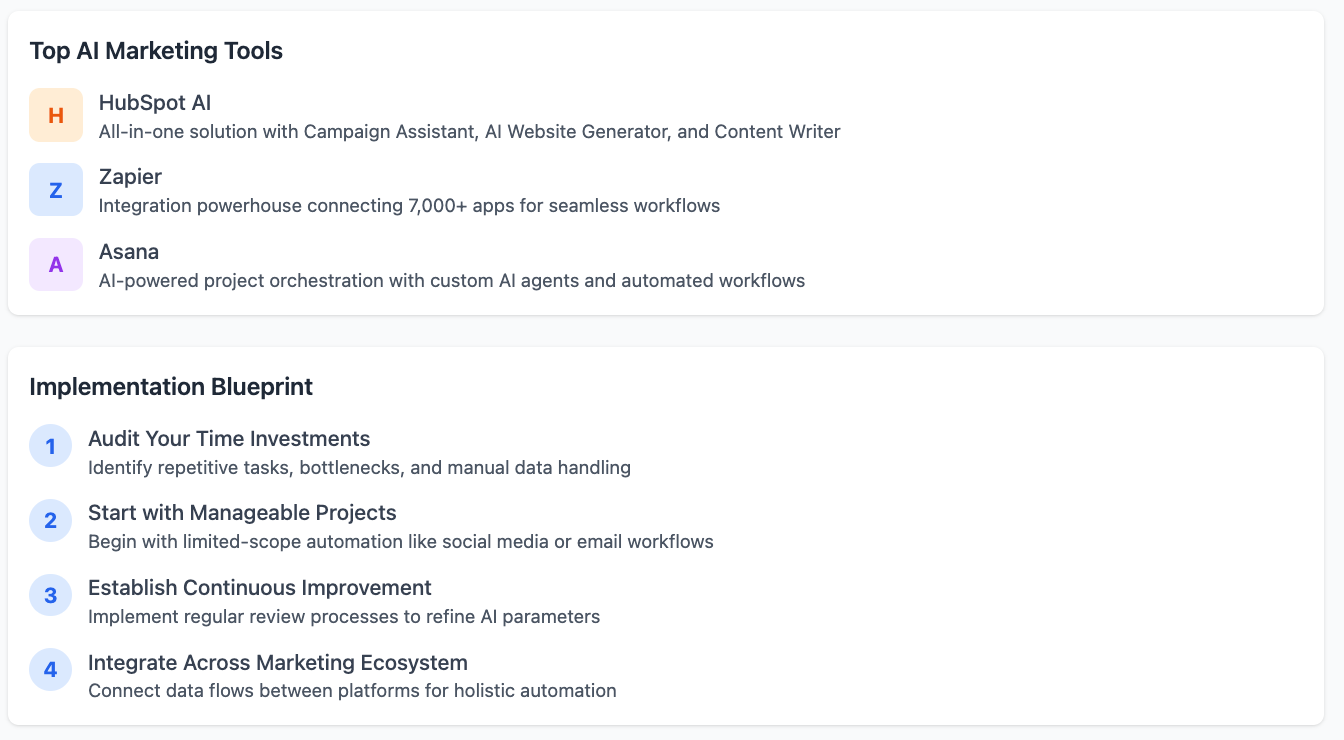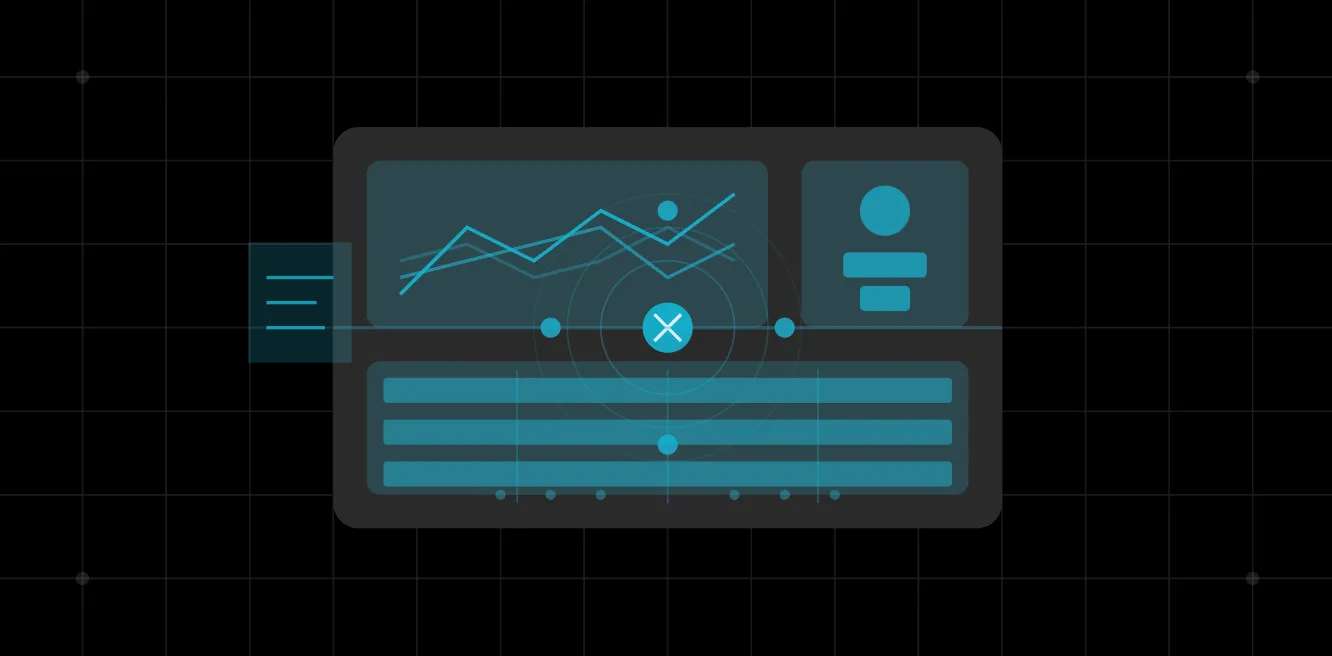Automate Workflows Like a Pro with Marketing AI Tools: A Guide to Master Your Marketing in 2025
In today’s fast-paced marketing environment, the difference between leading and lagging often comes down to operational efficiency. AI marketing tools have emerged as the game-changing technology that’s helping marketing teams eliminate mundane tasks, streamline complex processes, and focus their energy on creative strategy and relationship building. If you’re looking to transform your marketing operations, here’s how AI-powered workflow automation can help you work smarter, not harder.

Understanding AI-Powered Workflow Automation
Unlike traditional automation that follows rigid, predefined rules, AI workflow automation leverages machine learning and natural language processing to handle both routine tasks and complex processes that require adaptive decision-making. AI workflow automation software doesn’t just execute repetitive actions—it learns, adapts, and makes intelligent decisions based on patterns and data analysis.
What makes AI workflow automation particularly valuable for marketers is its ability to handle the entire spectrum of marketing operations, from simple data entry to complex campaign orchestration requiring nuanced judgment.

Definition and Benefits of AI Workflow Automation
AI workflow automation refers to the use of artificial intelligence technologies to automate repetitive tasks and processes within a business workflow. Unlike traditional automation, which relies on predefined rules, AI workflow automation leverages machine learning algorithms to analyze data, identify patterns, and make intelligent decisions. This allows businesses to streamline their operations, increase efficiency, and reduce costs.
The benefits of AI workflow automation are manifold:
-
Increased Productivity: By automating repetitive tasks such as data entry and routine administrative work, businesses can free up valuable time and resources. This allows teams to focus on more strategic and creative endeavors that drive growth.
-
Improved Accuracy: AI algorithms excel at reducing errors, ensuring that data entry and processing are performed with high precision. This leads to more reliable outcomes and fewer costly mistakes.
-
Enhanced Customer Experience: AI-powered chatbots and virtual assistants provide 24/7 customer support, improving response times and ensuring consistent service. This enhances customer satisfaction and loyalty.
-
Better Decision-Making: AI can analyze vast datasets to uncover insights that inform business decisions. By identifying trends and patterns, AI helps marketers make data-driven choices that enhance campaign effectiveness.
-
Scalability: AI workflow automation can handle large volumes of data and scale effortlessly to meet the needs of growing businesses. This ensures that operations remain efficient even as the business expands.
By implementing AI workflow automation, businesses can achieve a higher level of operational efficiency, allowing them to stay competitive in a rapidly evolving market.

Key Statistics on AI Adoption in Marketing
The adoption of AI in marketing is accelerating, with many businesses recognizing its potential to transform their operations. Here are some key statistics that highlight the current state of AI adoption in the marketing industry:
-
64% of marketers use AI in some form at work, but only 21% have integrated AI extensively into their workflows. (Source: HubSpot)
-
62% of marketers agree that they should use AI, but not too much, indicating a cautious yet optimistic approach to AI adoption. (Source: HubSpot)
-
A staggering 97% of business leaders believe that AI and machine learning will enable companies to analyze social media data and insights more effectively. (Source: Sprout Social)
-
60% of marketers feel overwhelmed by their jobs, and AI can help automate repetitive or predictable tasks, alleviating some of this pressure. (Source: HubSpot)
These statistics underscore the growing recognition of AI’s potential to enhance marketing efficiency and effectiveness. As more marketers embrace AI tools, we can expect to see even greater advancements in how marketing campaigns are planned, executed, and analyzed.
The Business Case for AI Marketing Automation
The numbers tell a compelling story about AI’s impact on marketing efficiency:
-
Reclaim nearly a month of productive time: Marketers using AI save an average of 12.5 hours weekly, equivalent to almost 26 working days annually. Imagine what your team could accomplish with an extra month of productivity each year.
-
Enhanced decision quality: By analyzing vast datasets far beyond human capacity, AI provides insights that lead to more informed strategic decisions.
-
Consistent execution: AI ensures that marketing processes run reliably according to schedule, eliminating the delays and errors common in manual workflows.
-
Scalable operations: As your marketing initiatives grow, AI-powered workflows scale effortlessly without requiring proportional increases in headcount or resources.
Customer relationship management (CRM) systems, such as Salesforce, are significantly enhanced by AI marketing automation. These systems enable businesses to store and analyze customer data, integrate with various applications, and personalize customer interactions, ultimately improving customer experience and operational efficiency.
These benefits translate into tangible competitive advantages: faster campaign deployment, more personalized customer experiences, and the ability to experiment with new strategies while maintaining operational excellence.
Game-Changing AI Tools for Marketing Workflow Automation
HubSpot AI: The All-in-One Marketing Workflow Solution
HubSpot has evolved from a simple CRM into a comprehensive AI-powered marketing platform. Its integrated suite includes:
-
Campaign Assistant: Streamlines the creation of copy for landing pages, emails, and advertisements, reducing what used to take hours to minutes.
-
AI Website Generator: Enables rapid website development and iteration without extensive coding knowledge.
-
Content Writer: Produces blog posts, social media content, and other marketing materials that can be refined to match your brand voice.
The integration of these AI assistant tools within a single ecosystem creates seamless workflows where content moves from creation to deployment with minimal friction.
Zapier: The Integration Powerhouse
In the fragmented landscape of marketing tools, Zapier serves as the digital glue that connects disparate platforms. To effectively implement AI workflow automation, careful planning and decision-making are crucial, and Zapier provides the tools to achieve this seamlessly. With access to over 7,000 apps, it enables marketers to:
-
Create automated workflows (called “Zaps”) that trigger actions across multiple platforms
-
Connect content creation AI tools with distribution channels
-
Build complex marketing sequences without writing code
Zapier’s strength lies in eliminating the manual transfer of information between systems, creating continuous workflows that span the entire marketing stack.
Asana: AI-Powered Project Orchestration
Asana has transformed project management with its AI Studio feature, which allows teams to:
-
Design custom AI agents tailored to specific workflow needs
-
Automate intake processes, task assignments, and reporting
-
Create self-organizing workflows that adapt to changing priorities
A robust data management strategy is essential for leveraging Asana’s AI capabilities effectively. By ensuring that datasets are well-organized and clean, teams can make accurate decisions and seamlessly integrate AI tools.
This level of project automation ensures that marketing initiatives maintain momentum even as priorities shift and new opportunities emerge.
[AdCreative.ai](http://AdCreative.ai): Reimagining Advertising Workflows with Generative AI
Advertising creation has traditionally been a labor-intensive process requiring multiple iterations. AdCreative.ai leverages generative AI to transform this workflow by:
-
Generating complete ad packages including strategy, creative elements, audience targeting, and copy
-
Suggesting conversion-optimized strategies based on performance data
-
Providing multiple creative and messaging options to enable rapid testing
This end-to-end approach to ad creation dramatically reduces the time from concept to campaign launch.
[Seamless.AI](http://Seamless.AI): Streamlining Marketing-Sales Alignment with Customer Relationship Management
While primarily designed for sales teams, Seamless.AI offers significant workflow benefits for marketers focused on account-based strategies. Additionally, it enhances social media management by automating tasks such as scheduling posts, engaging with audiences, and creating content, thereby improving overall efficiency:
-
AI-powered prospect identification aligned with target account profiles
-
Automated outreach message generation tailored to prospect characteristics
-
Real-time contact data verification to ensure accurate campaign targeting
These capabilities create a more fluid workflow between marketing initiatives and sales engagement.
AI Productivity Tools for Marketing
Overview of AI Productivity Tools
AI productivity tools are software applications that leverage artificial intelligence to automate tasks, provide insights, and improve workflows. These tools are designed to help marketers streamline their work, increase productivity, and focus on more strategic and creative tasks.
By using AI productivity tools, marketers can:
-
Automate Tasks: From scheduling social media posts to generating reports, AI tools can handle a wide range of repetitive tasks, freeing up time for more important activities.
-
Gain Insights: AI tools can analyze large datasets to uncover valuable insights, helping marketers make data-driven decisions that enhance campaign performance.
-
Improve Workflows: By integrating various marketing tools and platforms, AI productivity tools create seamless workflows that reduce friction and improve efficiency.
Incorporating AI productivity tools into your marketing strategy can lead to significant time savings, improved accuracy, and better overall performance. As AI technology continues to evolve, these tools will become even more powerful, offering new ways to enhance marketing operations and drive business growth.
Implementation Blueprint: Automating Like a Pro
Step 1: Audit Your Time Investments
Before selecting an AI tool, conduct a thorough analysis of where your team currently spends the most time. Look for:
-
Repetitive tasks performed daily or weekly
-
Processes that frequently cause bottlenecks
-
Activities that require significant manual data handling
The most successful AI implementations target the highest-impact opportunities first.
Step 2: Start with Manageable Automation Projects
Rather than attempting to transform your entire workflow overnight, begin with clearly defined, limited-scope projects. Social media marketing is a great example, as automating tasks like posting schedules, optimizing campaigns, and analyzing performance can significantly enhance your efforts. Consider:
-
Automating social media posting schedules
-
Setting up AI-powered email response workflows
-
Creating automated reporting dashboards
These initial projects build confidence and provide immediate ROI while your team develops AI fluency.
Step 3: Establish Continuous Improvement Cycles
AI systems improve through ongoing learning and refinement. Implement regular review processes to:
-
Analyze workflow performance data
-
Identify opportunities for further automation
-
Refine AI parameters based on results
This iterative approach ensures that your automated workflows continuously evolve and improve over time.
Step 4: Integrate Across the Marketing Ecosystem
The greatest efficiency gains come from cross-channel integration. Focus on:
-
Connecting data flows between platforms
-
Ensuring consistent messaging across touchpoints
-
Creating unified analytics that span multiple channels
This holistic approach prevents the creation of new silos that could undermine automation benefits.
The Future of Marketing Workflows
As AI technology continues to advance, we can expect marketing workflows to become increasingly intelligent and autonomous. Future systems will likely:
-
Proactively suggest campaign optimizations before performance issues arise
-
Automatically adapt messaging based on real-time audience response
-
Orchestrate complex, multi-channel campaigns with minimal human intervention
For forward-thinking marketing teams, the question isn’t whether to adopt AI workflow automation, but how quickly they can implement it to stay ahead of competitors.
Conclusion: The Human-AI Partnership
The most effective approach to AI workflow automation isn’t about replacing marketers—it’s about creating a powerful partnership where AI handles operational tasks while human creativity and strategic thinking flourish.
By thoughtfully implementing AI workflow automation, marketing teams can elevate their focus from routine execution to the higher-value activities that truly drive business growth: creative storytelling, authentic relationship building, and innovative strategy development.
This article explores how artificial intelligence is transforming marketing workflows through automation tools that handle both routine tasks and complex processes, providing significant time savings, improved efficiency, data-driven decision support, and scalability benefits for modern marketing teams.
Let's Talk
Your ride-or-die partner
Your own world-class product team at a fraction of the cost
Tell us about yourself
- From Idea to Product 10X Faster
- Unlimited Request & Revisions
- Streamlined Tooling
- Your Dedicated Team
